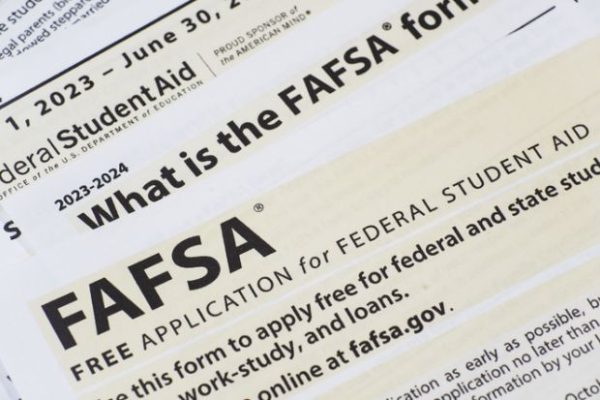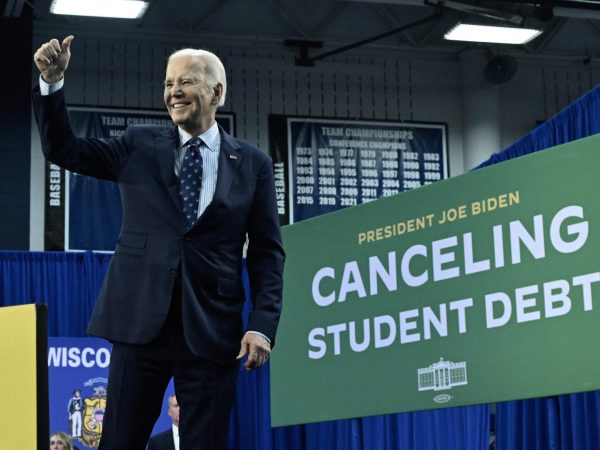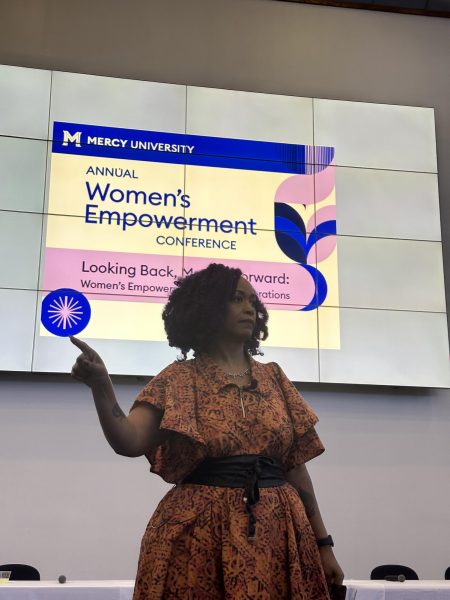Adjunct Union Walkout On Meeting, Considering Potential Work Stoppage
The Mercy Adjunct Union is considering a work stoppage if contract negotiations do not progress in two upcoming March negotiation sessions.
This potential escalation in strategy comes following a union walkout of the Feb. 14 session. The walkout was the result of Mercy College rejecting the Union proposal for a third-party arbitration process to settle grievances between Mercy College administration and the union.
“After two and half years when you want some type of give and take, and there’s no room for negotiation, it makes no sense to stay when they are just openly rejecting it,” said Charles Chesnavage, Religion Adjunct instructor.
Mercy College rejected the arbitration process as they believe the process would greatly affect the school’s resources.
“The college is concerned that arbitration is designed to mimic a litigation process that is adversarial and that could become a serious drain on the college’s resources if used on a frequent basis, particularly in the context of a large multi-faceted adjunct workforce,” said Laura Plunkett, Direct of Public Relations and Community Relations for Mercy College.
Plunkett also stated the college did propose using an independent mediator to help settle disputes between the college and the union.
According to Chesnavage, the next two negotiations, set for March 2, and March 7, will be crucial in determining the next plan of action for the union.
Members of the union are not optimistic heading into these next sessions as they expect Mercy to continue what they consider stalling methods.
“I think there is no hope at all. There’s no hope of getting anything at the table. They are telling us we have to do it the hard way,” said Catherine Johnson, English adjunct assistant professor.
This is the opposite tone of Mercy College, which said it remains optimistic in finding agreeable resolutions to the remaining proposals.
“We approach each bargaining session in good faith with a problem-solving mindset. The college hopes and believes that the upcoming bargaining sessions will lead to tentative agreements on additional subjects,” said Plunkett.
Johnson also indicated that even if the union does vote for a strike, which would require a majority of the membership, it may not lead directly to a work stoppage.
“Nobody wants a strike. They don’t want a strike. We don’t want a strike. Typically, the real negotiations happen after that vote,” said Johnson.
Mercy College recognizes the threat of a strike as a negotiating tool as labor negotiations become more difficult, especially on an initial collective bargaining agreement. However, they note such an action by the union could have a “detrimental impact on everyone.”
“We certainly hope that our adjunct faculty will not choose to take an action that would be harmful to the success of our students. In the unlikely event that this does occur, Mercy College is prepared to take all necessary steps to keep our students on track,” said Plunkett.
The union also placed part of the reasons for the Feb. 14 walkout on the amount of money Mercy College has spent on outside lawyers and the relationship developed over the past two and half years between the college and union.
Some adjuncts have accused Mercy of hiring anti-union lawyers to break up and weaken the union before a contract can be reached. They compared it to previous actions in American history with anti-union motives.
“This is textbook labor busting. The only difference now is they aren’t coming out with guns and thugs,” said James McSherry, Communication and the Arts adjunct instructor.
Mercy College did hire outside law firms to help handle these negotiations and advise the college and its general counsel throughout the negotiations.
“In this case, the college has retained outside counsel specializing in the practice of labor law. Our general counsel and our outside labor counsel both attend each bargaining session and work closely with one another throughout this process,” said Plunkett.
The union also highlights the other bargaining group in Mercy College has the same proposals within their contract.
Plunkett noted the long history of working collaboratively and amicably with the staff union. She also noted the success some of the bargaining sessions have had with the adjuncts.
“We have exchanged multiple proposals and counter-proposals on nearly 30 topics and have reached agreements so far on over half of them,” said Plunkett.
However, the union still feels they are being treated differently than the staff union and other groups Mercy College deals with.
Chesnavage stated, “It’s a second-class citizenship that we have here.”

James Tiedemann graduated from Mercy College in the May of 2022. He transferred there after graduating from SUNY Orange with his Associate's Degree in...













